The role of the Community Leadership Faculty Advisory Committee is to advise and support the CLDR Master’s and Certificate programs. The Faculty Advisory Committee will:
- Promote the CLDR programs on and off campus.
- Participate in student recruitment for the CLDR program.
- Advise the Graduate Program Director on CLDR programmatic and university-wide issues and policies.
- Provide support and service to the program by developing, revising, and promoting CLDR courses and programming, including regularly reviewing and approving electives.
- Serve as liaisons with home departments/programs, and communicate with the department chairs and faculty about the CLDR program.
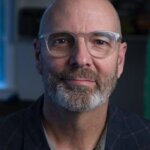
Lee Boot, M.F.A.
Show more
Lee Boot is Director of the Imaging Research Center, and Affiliate Associate Professor of Visual Arts and Computer Science & Engineering at UMBC. His practice involves bringing values, modes and methods from the arts into multidisciplinary teams addressing serious societal challenges such as substance misuse, low education achievement, healthcare and the epidemiology of pandemics. Such teams work to develop and test new approaches to the configuration of technology, and to the design of media and visualization forms and content. The goal is to change the nature of how we as a society address these challenges, from a technocratic approach to one that relies on insights from the arts, such as the central role of narrative and aesthetic experience in helping shape and navigate culture and identity. He develops his approach to these projects through the practice of painting.
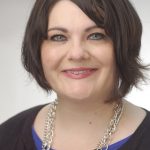
Lauren Hamilton Edwards, Ph.D.
Show more
Dr. Edwards is an assistant professor in the School of Public Policy at the University of Maryland, Baltimore, County. She researches the management of public sector organizations, particularly how these organizations strategize for the future, how they include the public, and workforce inclusion. She is the advisor for graduate students that focus on public management.
Dr. Edwards received her Master of Public Administration from the University of North Texas in Denton, Texas and her Ph.D. in Public Policy from a joint program at Georgia State University and the Georgia Institute of Technology in Atlanta, Georgia. She currently lives in Catonsville, Maryland with her husband and awesome dogs, Jasper and Scout.

Sarah Fouts, Ph.D.
Show more
Sarah Fouts is an Assistant Professor in the Department of American Studies, an affiliate professor in the Language, Literacy, and Culture doctoral program, an affiliate professor in the Latin American Studies minor, and program director of the Public Humanities Minor. Fouts’ research interests include transnationalism, Honduras, New Orleans, ethnography, labor, accompaniment methodology, and food studies.
Currently, Fouts is working on a book manuscript which uses ethnographic and archival research to analyze the transnational stories of Central American and Mexican food industry workers and day laborers in post-Katrina New Orleans. Fouts shows how despite being criminalized and pitted against other low wage workers, immigrants use strategies of self-reliance and multiracial solidarities to fight against extractive models of development in New Orleans and Honduras.
Fouts’ research includes public humanities projects with the Southern Food and Beverage Museum, the Southern Foodways Alliance, and the New Orleans Workers’ Center for Racial Justice (NOWCRJ) New Orleans Black Workers Organize labor history timeline. From 2017-2019, Fouts produced and edited the series “Latinx Foodways in North America” for the Society for the Anthropology of Food and Nutrition. Fouts is also an op-ed contributor for the New York Times and contributes articles to NACLA and Gravy magazine.
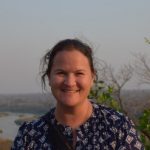
Margaret Buck Holland, Ph.D.
Show more
Dr. Holland is an associate professor in the Department of Geography & Environmental Systems at the University of Maryland Baltimore County. She is an applied human-environment geographer and is driven by research questions that actively address environmental conservation and human well-being challenges in the local contexts, but also builds broader lessons for informing changes to environmental policy and management.
Dr. Holland’s scholarly interests rest at the intersections between rural livelihoods, land use dynamics, governance, and conservation strategies.
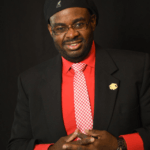
Michael Hunt, M.Div.
Show more
Rev. Michael A. Hunt is a native of Baltimore, received his bachelor’s degree from the University of Maryland, Baltimore County (UMBC), and his Master of Divinity from Emory University in Atlanta, Georgia. Michael has served as a university/college administrator, middle & high school math instructor, musical vocalist, and social justice educator, shaping the lives of today’s leaders. His life’s work focuses on radical inclusion through social justice engagement & interfaith partnerships. Also, Michael has returned to his alma mater as the Director of the UMBC McNair Scholars Program, working to increase underrepresented and underserved, first-generation, and low-income students’ attainment of research-based doctoral degrees. His personal research interest seeks to bridge spirituality and STEM education by providing culturally nuanced resources for increasing self-esteem and promoting holistic critical mentoring. Michael focuses on dismantling hierarchical structures that impede the success of underserved populations by examining holistic critical mentoring, a network of power-dynamic-flipped, student-centered, reciprocal relationships. Michael is completing his Ph.D. at UMBC in the Language, Literacy, and Culture (LLC) Program. He embraces daily the belief that “If I can help somebody as I pass along, then my living shall not be in vain.”
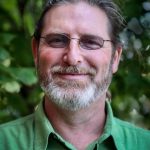
Joby Taylor, Ph.D.
Show more
Joby Taylor came to Baltimore as a Peaceworker Fellow in 1999 and liked the program and the city so much that he has proudly stayed on, becoming program director in 2003. Joby was born and raised in Miami, Oklahoma, a small town that is also home to eight Native American nations. He served as a Peace Corps Volunteer in Gabon, Africa (91-93) helping build an elementary school in the village of Seka Seka, and, as all RPCVs soon find, he learned much more than he gave along the way. Joby’s involvement in service and service-learning has included other construction projects in the U.S. and the Caribbean, but also much work with youth, particularly at-risk and special needs youth. Academically Joby received his B.A. in Philosophy, an M.A. in Religious Studies, and completed his Ph.D. in the Interdisciplinary Language Literacy and Culture program. His dissertation is titled: Metaphors We Serve By: Critical and Constructive Play with the Discourses on Service. Joby lives in Baltimore City with his wife Beth and their two girls, Isabel and Katherine.
Looking for more info?
